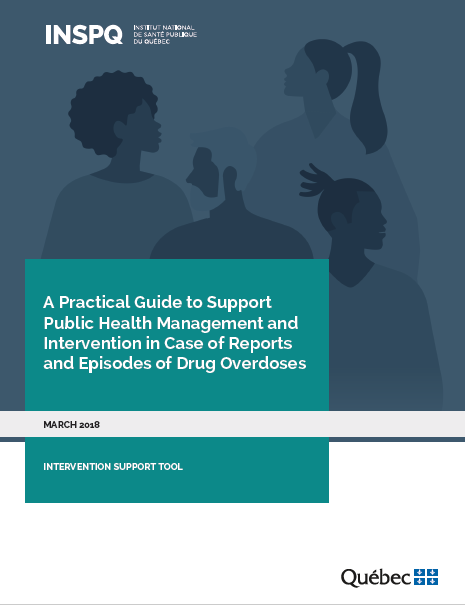Given the increase in the number of overdoses and of episodes of excess overdoses, it is clear that we are facing the emergence of a real public health problem, which requires new cooperative efforts and the development of knowledge that extends beyond traditional public health practices. To respond to this need, it appeared necessary to better equip public health actors to manage such events, in accordance with the framework of their responsibilities.
This guide may help to reduce organizational delays and optimize the appropriateness of responses when an excess of overdoses occurs in a region. It is presented in the form of a practical guide in order to facilitate its assimilation and its use to support intervention in situations involving reports or episodes of drug overdoses. It will help guide action when overdoses are reported by providing a common understanding of various aspects related to preliminary analysis, investigation and intervention by public health.
This guide must be incorporated into a broader approach involving other public health functions (surveillance, health promotion, prevention), which exceeds the scope of this guide.
The guide begins by presenting the various actors who may be involved in the intervention process. The main body details the different aspects of the process undertaken by public health authorities: reporting, preliminary analysis, epidemiological investigation, intervention and evaluation. The appendices provide tools for reporting overdoses and conducting investigations as well as various types of information about potential partners.

